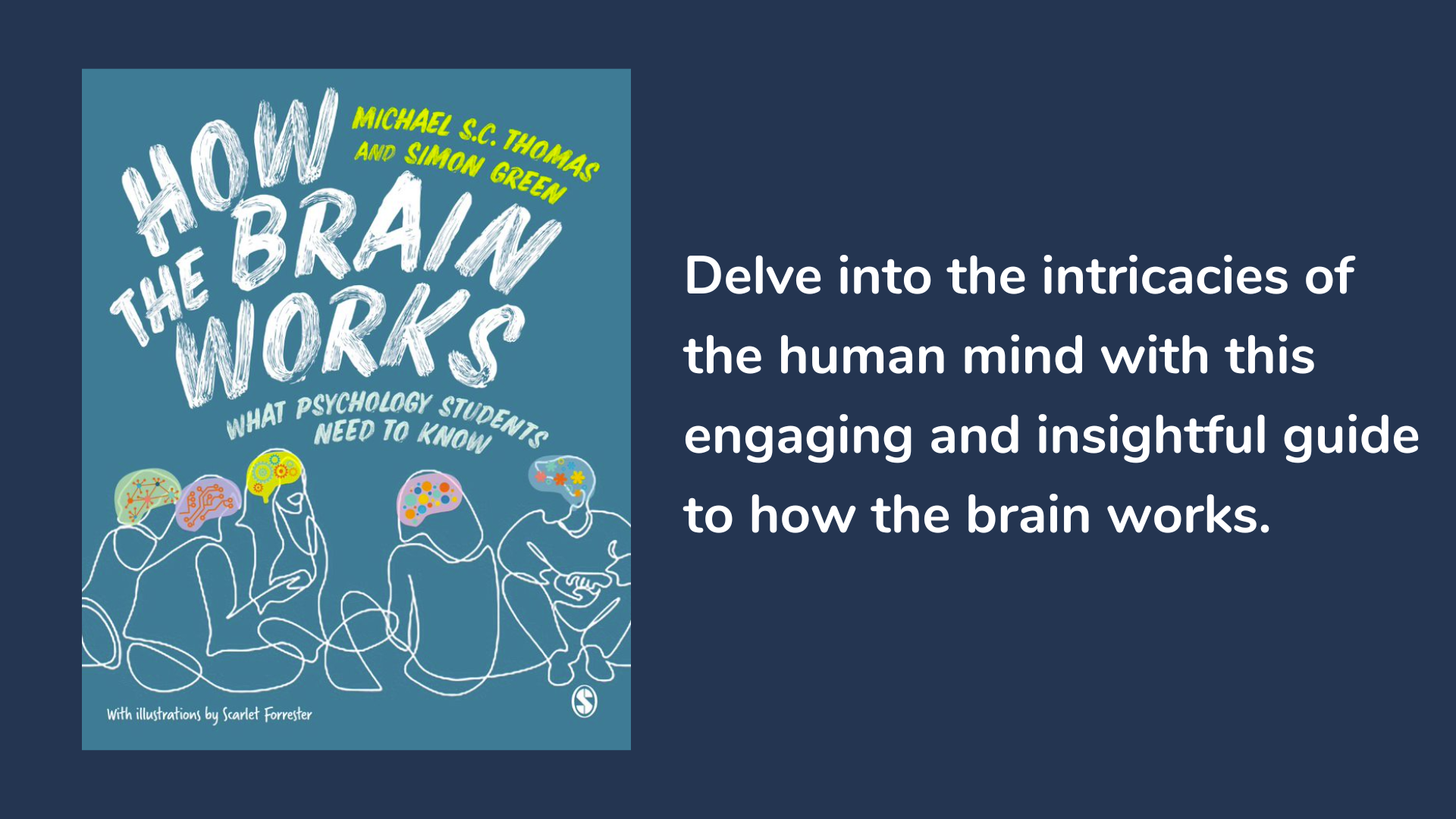How The Brain Works:
What Psychology Students Need To Know
Michael S.C. Thomas and Simon Green
Written in a playful style and beautifully illustrated, this book is designed to support you as you embark on the beginning of your psychology degree. It provides an accessible guide to how the brain’s structures and functions determine how the mind works, and how this fits into the bigger picture of our evolution and biology as a species.
From focus boxes that delve into specific topics to entertaining puzzles that bring the subject to life, How The Brain Works will captivate your imagination while building your understanding of biological and cognitive psychology.
This book is intended to give psychology students a basic understanding of how the brain works, and why the brain shows the kinds of properties it does. It sets the functioning of the brain in a biological and evolutionary context and provides the foundation for more advanced studies in cognitive neuroscience and biopsychology. The book covers the main introductory material of how neurons work, the components of the brain, and how they fit together. But an original feature of the book is a sustained emphasis on how behaviour reflects the interaction of the multiple systems within the brain, that is, a gist of how the whole thing works. It also highlights current challenges in the field, such as the ethics of neuroscience, and whether we can and should enhance cognition.
Rather than just a description of parts, the focus on evolution allows the book to answer 'why' questions, such as how something as complex as a neuron (with its electrical and chemical properties) could have evolved, why the brain has been put on back to front, how the brain can tell if it’s happy, and how it’s awards ceremonies that mark humans out as a special species. It considers why all the other human species went extinct, and how to use what we know about the brain to address the climate crisis.
This is an essential read for undergraduate psychology students.
For more information, chapter content, and support material, visit: how-the-brain-works.com
How The Brain Works: What Psychology Students Need To Know is available from your local bookseller and online internationally from Amazon.
About The Authors
Michael S. C. Thomas is a professor of cognitive neuroscience at Birkbeck, University of London and Director of the Centre for Educational Neuroscience. One of his main interests is the translation of research between neuroscience and education. With Cathy Rogers, he recently published the book ‘Educational Neuroscience: The Basics’ (Routledge). The focus of his research laboratory, the Developmental Neurocognition Lab, is to use multi-disciplinary methods to understand the brain and cognitive bases of cognitive variability, including the use of behavioural, brain imaging, computational, and genetic methods. He has published over 150 scientific papers and book chapters, and his work has been cited over 10,000 times. He is a Chartered Psychologist, Fellow of the British Psychological Society, Fellow of the US Association for Psychological Science, and Senior Fellow of the Higher Education Academy.
Simon Green was for many years a Senior Lecturer in Psychology at Birkbeck, University of London. Recently retired, he specialised in teaching introductory neuroscience to first year students. Along the way he published several textbooks in the area, including ‘Principles of Biopsychology’, still in print after 25 years. His research interests include neurotransmitter and hormonal modulation of brain function, the evolutionary background to the modern human brain, and the psychological and biological roots of psychological disorders. He is a Chartered Psychologist and member of the British Psychological Society.





